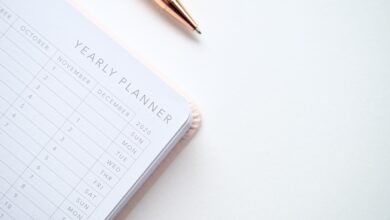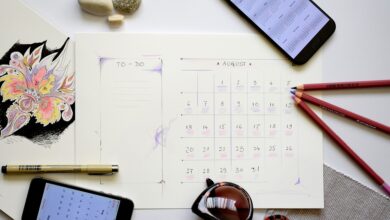10 Essential Benefits of Using a Planner for Productivity and Organization

Title: 10 Essential Benefits of Using a Planner for Productivity and Organization
Introduction
In today’s fast-paced world, staying organized and productive is crucial for effective time management and success. While digital tools are readily available, many people still find comfort and efficiency in using traditional planners. A planner is a tangible tool that helps individuals set goals, plan their schedules, and stay organized. In this article, we will explore ten essential benefits of using a planner for productivity and organization.
1. Goal Setting and Time Management
One of the key reasons why using a planner is beneficial is its ability to assist in setting and achieving goals effectively. Planners provide a dedicated space to write down short-term and long-term goals, ensuring they remain visible and actionable. By breaking down goals into manageable tasks and allocating specific time slots in the planner, individuals can prioritize their tasks and track their progress.
2. Increased Productivity
A planner acts as a central hub for scheduling and organizing tasks, making it easier to structure the day. By having a visual representation of one’s to-do list, individuals can allocate time and prioritize tasks more efficiently. Studies have shown that using a planner can help increase productivity by promoting focus, reducing distractions, and preventing procrastination.
3. Improved Time Awareness
Using a planner cultivates a habit of continuously checking and updating one’s schedule. This fosters a heightened sense of time awareness, making individuals more conscious of how they allocate their time. With regular use, individuals develop a realistic understanding of how long specific tasks take, leading to better time management.
4. Stress Reduction
The act of physically writing tasks down in a planner provides a sense of control and reduces mental clutter, relieving stress. By capturing thoughts and commitments on paper, individuals can alleviate anxiety about forgetting important deadlines or tasks. Furthermore, the visual representation of a planner helps individuals see the big picture, promoting a sense of calm and reducing overwhelm.
5. Enhanced Organization
Planners offer a structured way of organizing and categorizing tasks, events, appointments, and deadlines. With dedicated sections for monthly, weekly, and daily planning, individuals can easily view and manage their commitments. By centralizing all information in one place, planners streamline organization and eliminate the need to rely on multiple digital applications.
6. Increased Accountability
When tasks are scribbled down in a planner, individuals have a tangible reminder of their commitments. This sense of accountability helps individuals stay committed to their goals and encourages them to follow through on their plans. Reviewing and reflecting on completed tasks and milestones in the planner can provide a sense of accomplishment and motivate individuals to maintain their productivity.
7. Improving Prioritization Skills
Planners encourage individuals to critically analyze tasks and prioritize them based on urgency and importance. By allocating specific time slots for specific tasks, individuals can manage their workload more effectively. Planners serve as a visual reminder of the tasks that demand immediate attention and those that can be deferred.
8. Better Memory Retention
Writing tasks and important information by hand enhances memory retention. The physical act of penning down information allows individuals to engage different senses, making it easier to recall and remember details. Compared to digital tools, planners provide a more personal and thoughtful approach to note-taking, promoting better understanding and memory recall.
9. Creativity and Inspiration
Beyond organization and productivity, planners can unleash creativity. Many planners offer blank spaces or creative sections where individuals can express themselves through art, writing, or brainstorming ideas. This creative outlet helps foster inspiration, allowing individuals to think outside the box and explore innovative solutions to challenges.
10. Personal and Professional Growth
Using a planner not only helps individuals stay on top of their daily tasks but also promotes personal and professional growth. By using a planner consistently, individuals develop discipline, time management skills, and a proactive mindset. This enables them to optimize their productivity levels and unlock their true potential.
Conclusion
In a world increasingly dominated by digital platforms, the benefits of using a traditional planner for productivity and organization cannot be denied. By allowing individuals to set goals, manage time efficiently, reduce stress, and enhance organization, a planner becomes an indispensable tool for personal and professional success. Embracing the power of a planner can truly transform one’s life, elevating productivity, and providing a sense of control over daily endeavors.





